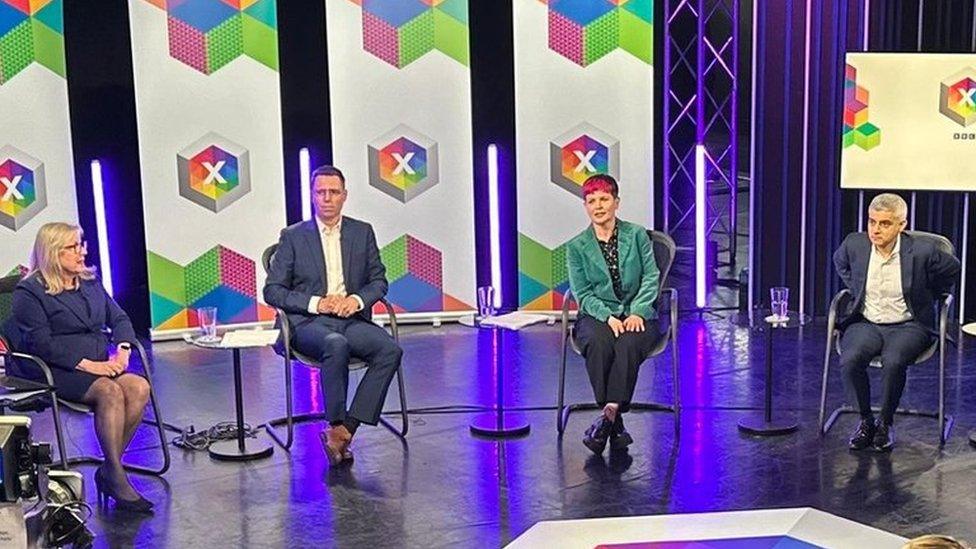'Young people want to vote but no one represents us'
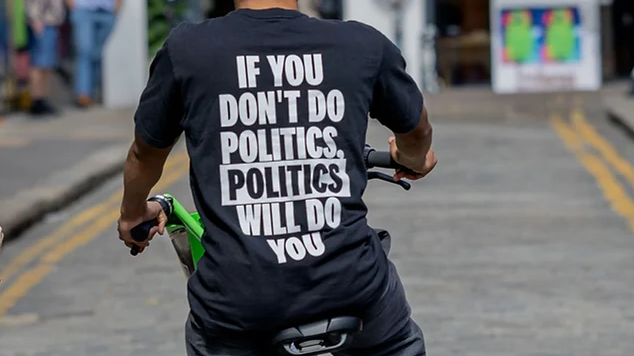
My Life My Say is a non partisan organisation dedicated to getting young people to vote in elections
- Published
In a few days, thousands of young people in the capital will head to the polls for the first time.
They will have the chance to vote for the mayor of London, a position that comes with a £20.4bn budget.
But what are some of the issues they really care about?
At Kingsley Academy in Hounslow, west London, sixth form students have been discussing the upcoming elections and the matters they would like to see the newly elected mayor address.
One of the biggest concerns for these students is crime and 18-year-old Sohaib wants to see more police on the street.
"I want to come out of my house and feel safe and secure without having to worry about being a victim of crime," he said.
His fellow student Morgan added she wants candidates to commit to reducing knife crime.
"I feel like the inequality gap is widening and so there are more young people turning to crime," she said.
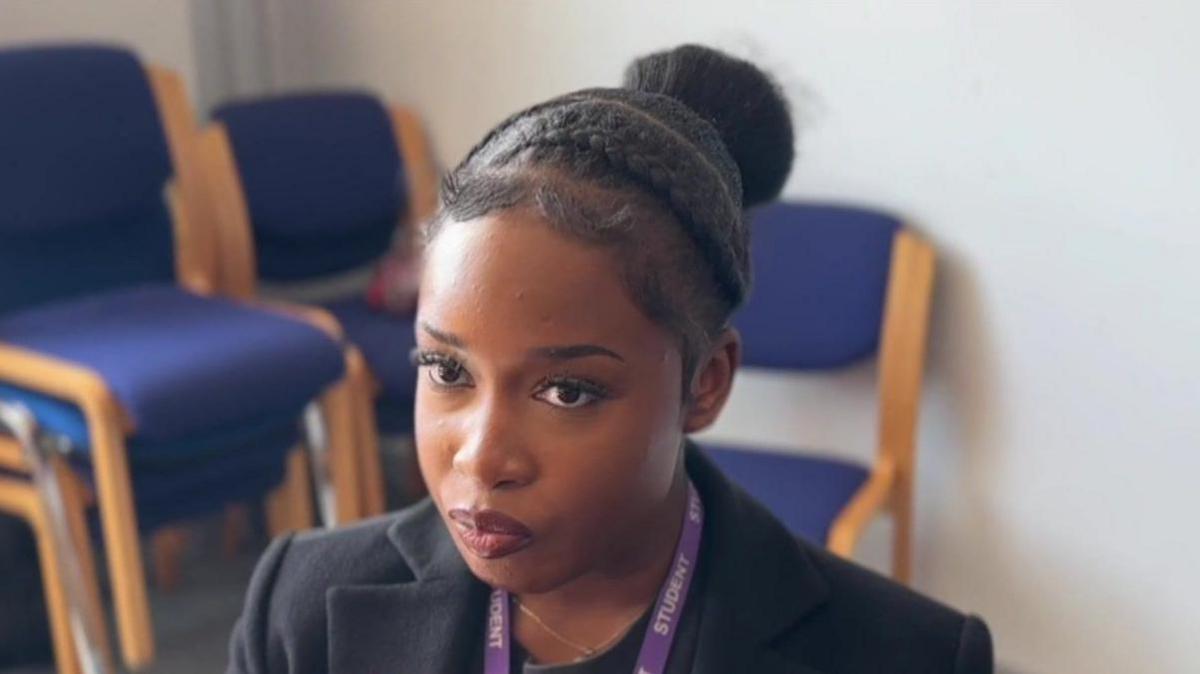
Morgan wants candidates to commit to tackling knife crime
She wants more youth clubs and schemes for young people so they have somewhere to go instead of spending time on the streets.
And as most of these young people prepare to head to university in September, the cost-of-living crisis is at the forefront of their minds.
"Everything is so expensive in London," Ninoshka said. "It makes it hard to move out of home for university".
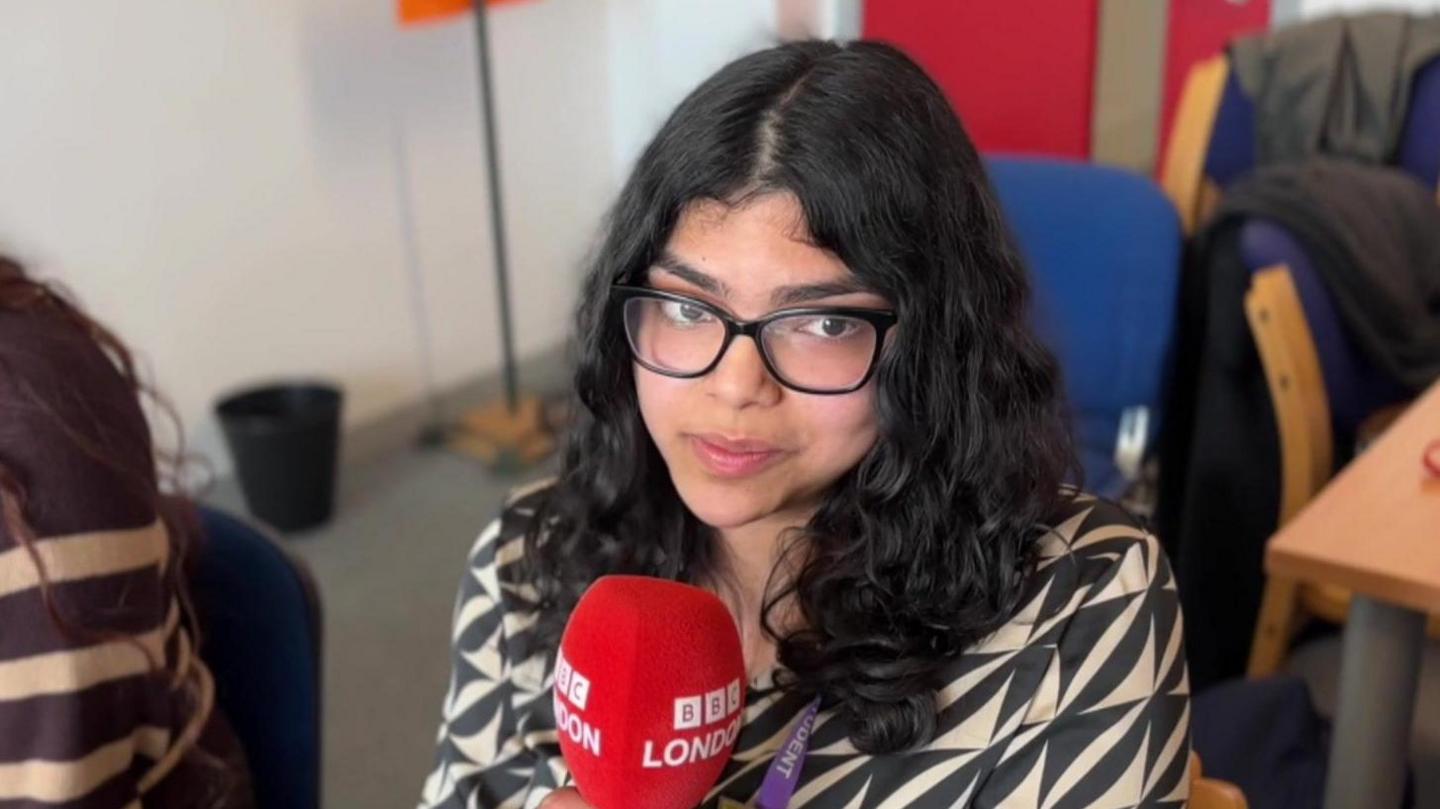
Ninoshka is already think how hard it will be to rent in London after university
She is already thinking about how, after university, she will be able to afford to rent in the capital and says if the mayor doesn't do about about the rising costs of private rentals and the housing crisis, she will have to consider moving out of the capital.
For Sohaib, he wants "actions not words".
"These politicians can say how much they will change but it's actions I want to see, as that's what matters," he told the BBC.
Sohaib said he wants candidates to pledge more help for young people.
"It's going to be a tough challenge when I go to university and right now it will be more about surviving than enjoying it," he added.
'Actions not words'
All of these students have registered to vote and said they will be taking up that right when the polls open on 2 May.
Although they are excited about voting, most of them are unsure which candidate to select.
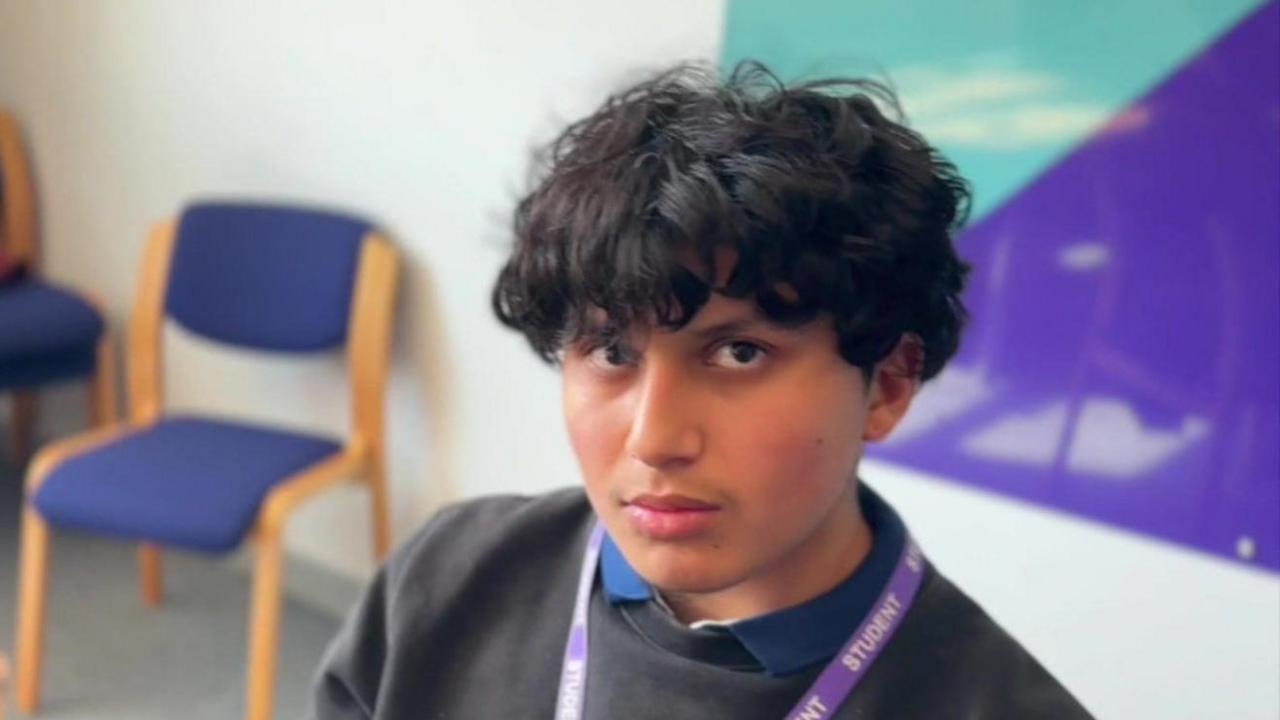
Sohaib says he does not trust politicians and wants to see more actions rather than empty words
Dev says he does not know which candidate to go for because, "they have all neglected the younger generation and are only pushing policies for older people such as scrapping the Ulez expansion".
He feels dissatisfied with the level of representation and thinks that is one of the reasons why young people are put off from voting.
For this group of young people, it seems politicians have a long way to go to win them over.
How will the mayoral candidates support young people?
Liberal Democrat candidate Rob Blackie, says he will create an Erasmus style scheme, external that allows young people to study and work overseas and create more internships for young people.
Green Party candidate Zoe Garbett says she will extend free bus travel to under 22s, invest in youth services and create a deputy mayor for young people.
Susan Hall, the Conservative candidate, wants to see more education on misogyny being taught in schools and wants to reduce youth violence by offering every school in London a knife arch.
Labour candidate Sadiq Khan will also implement an Erasmus style scheme, external, make free school means universal and pilot new mental health initiatives in secondary schools.
Love Island star Sharron Gaffka is part of a new campaign to get young people to vote.
She told the BBC she was "shocked" to find out 70% of 18 to 34-year-olds have voted in reality TV shows in the last 12 months, but only 37% of those people are planning to vote in the mayoral election.
The data from the non-partisan campaign organisation, My Life My Say, highlights "the problem that young people do not have the right tools to make informed decisions".
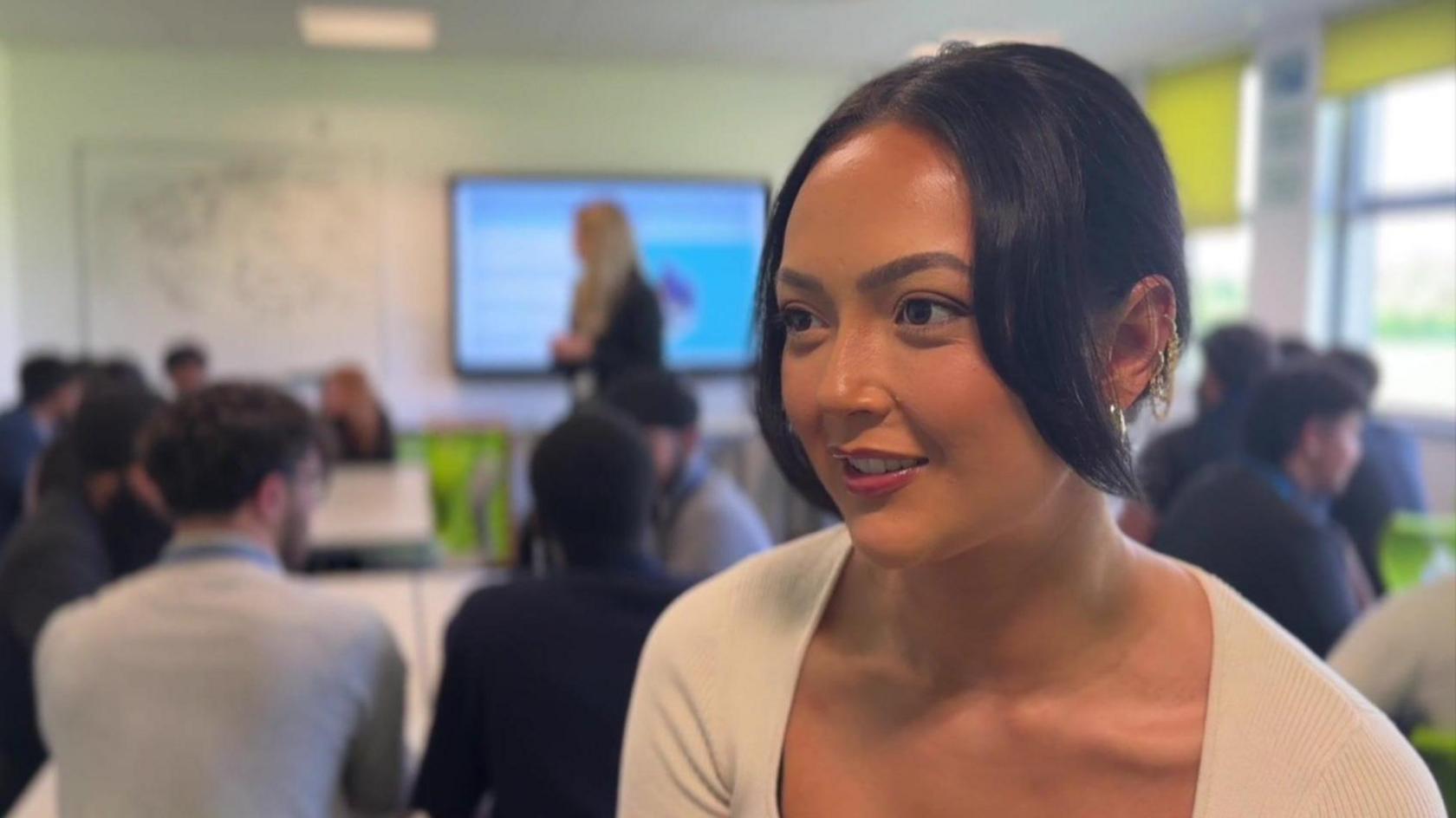
Sharon Gaffka said growing up she didn't think politics was for her
The former civil servant advised first time voters at Lampton School in west London that they should "pick three to five key issues that matter to them the most and vote based on that".
The 28-year-old reality TV star said as she has got older, she has realised "politics is for everyone and ultimately it is inevitable".
"If you don't do politics, politics will do you," she added.
More on the mayoral election
- Published2 April 2024
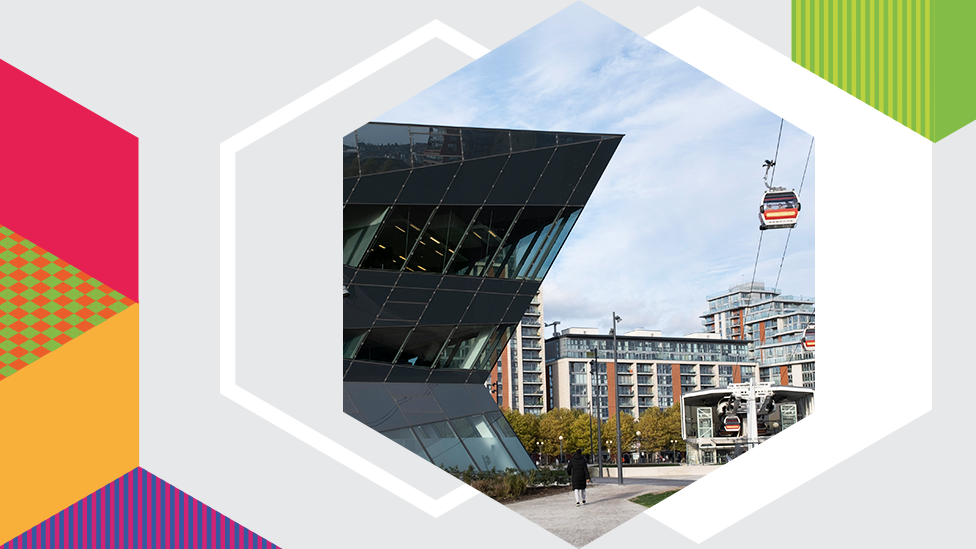
- Published25 April 2024
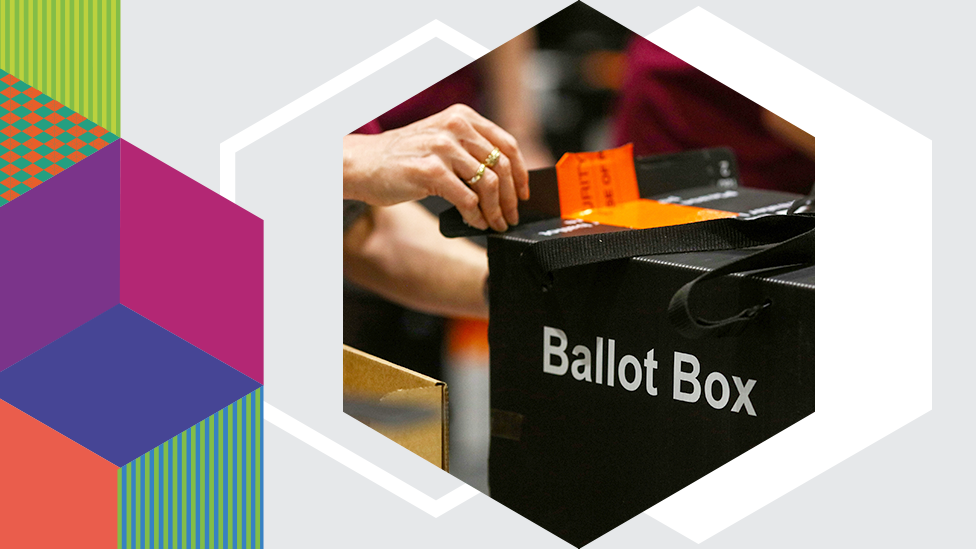
- Published25 April 2024
